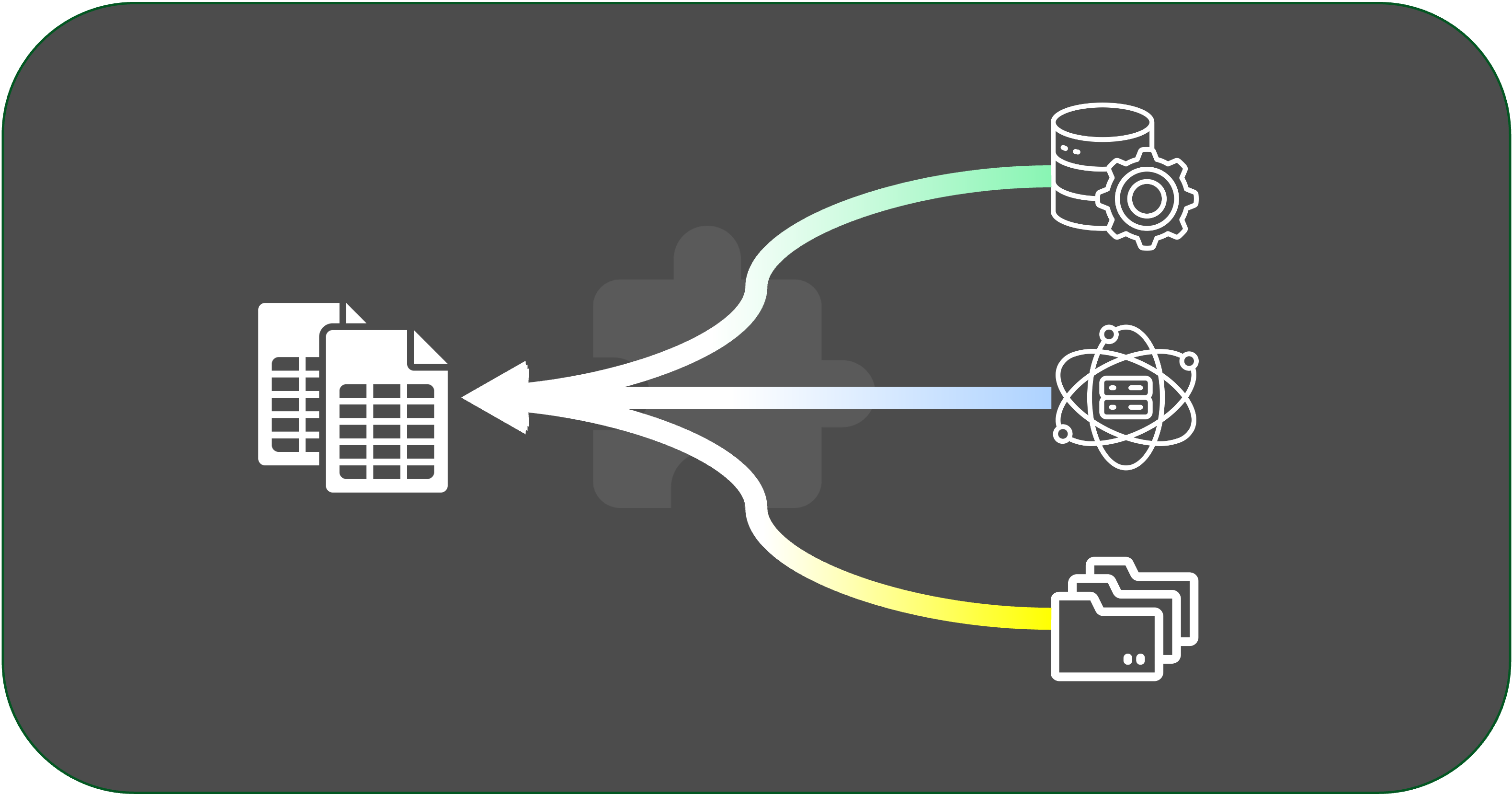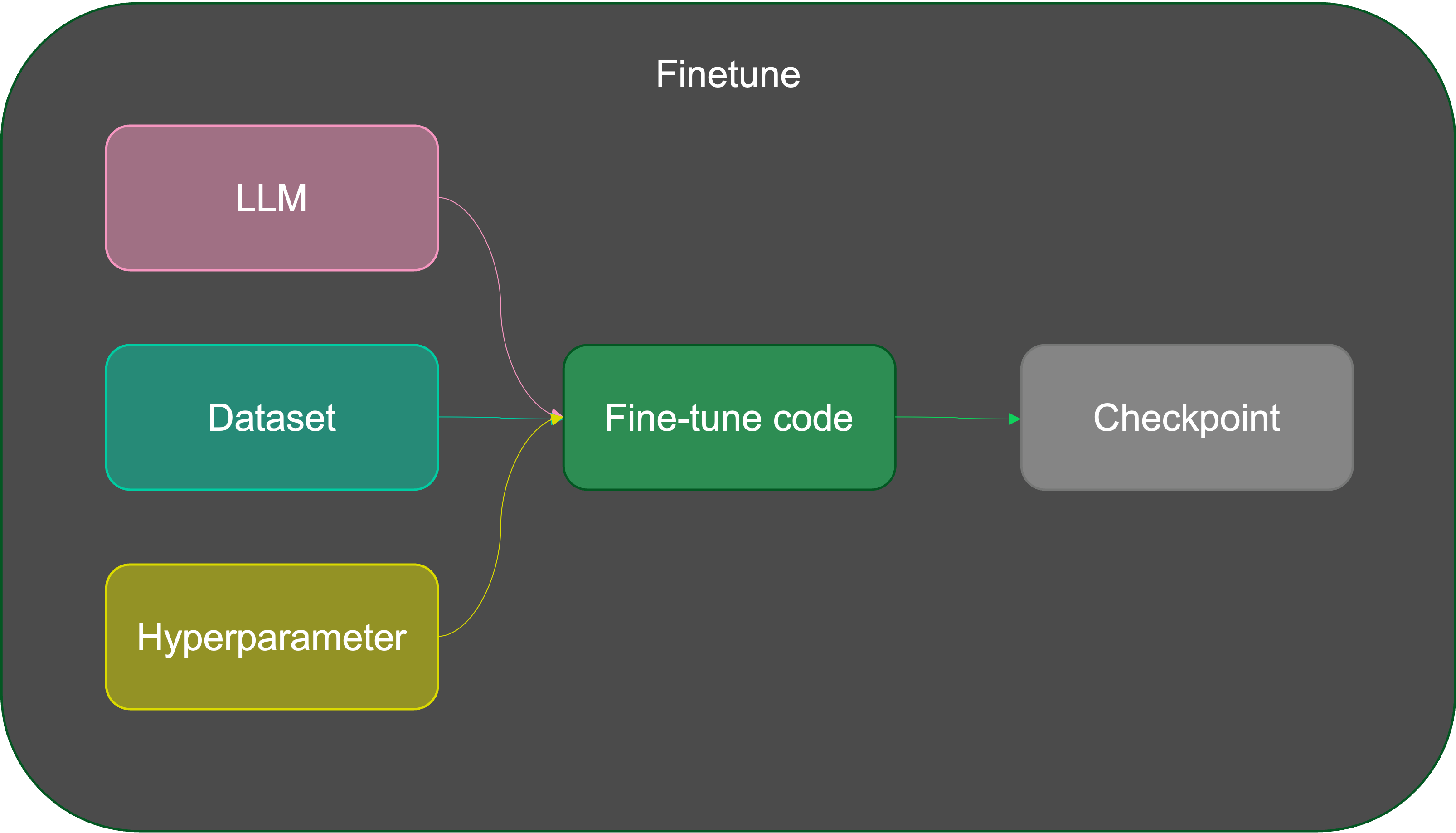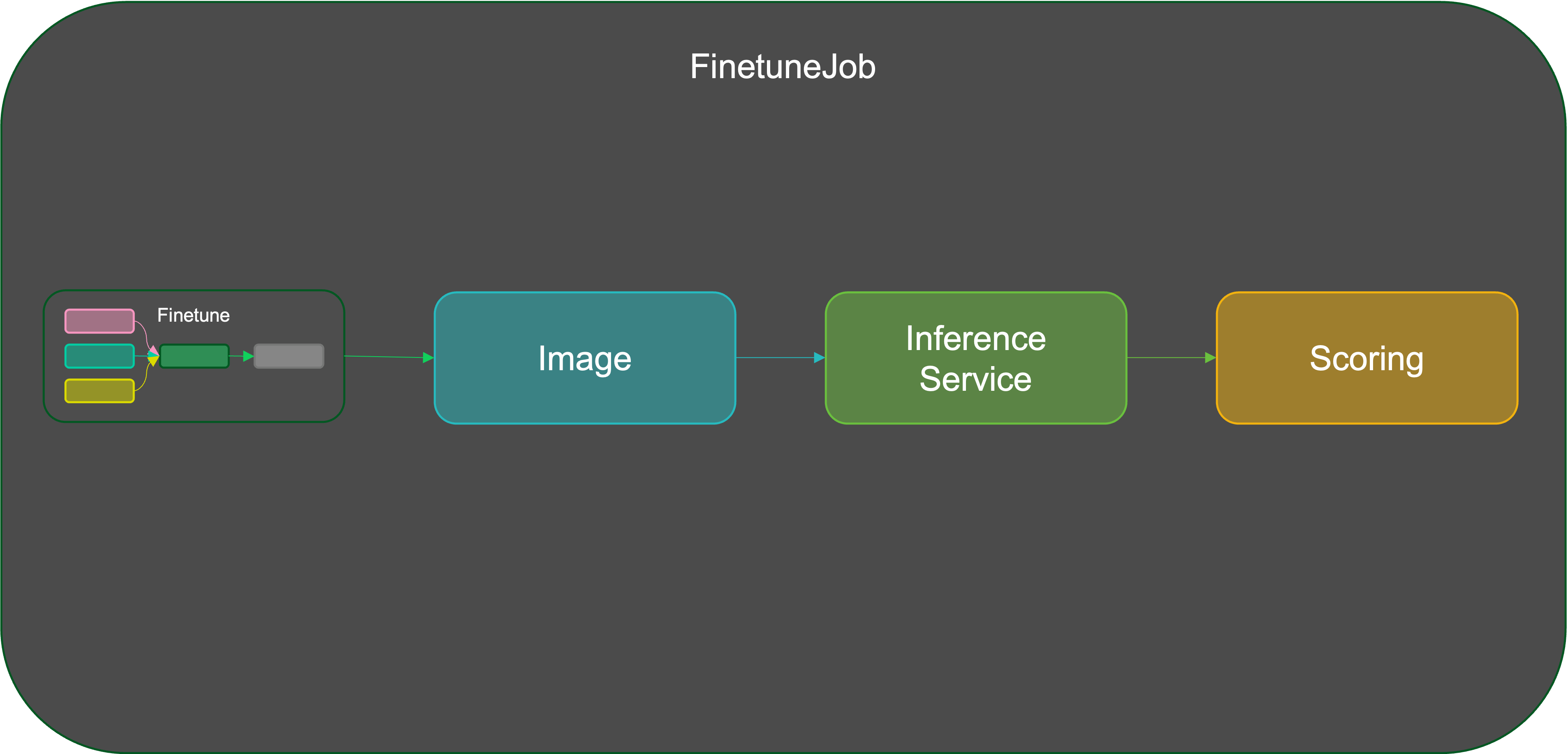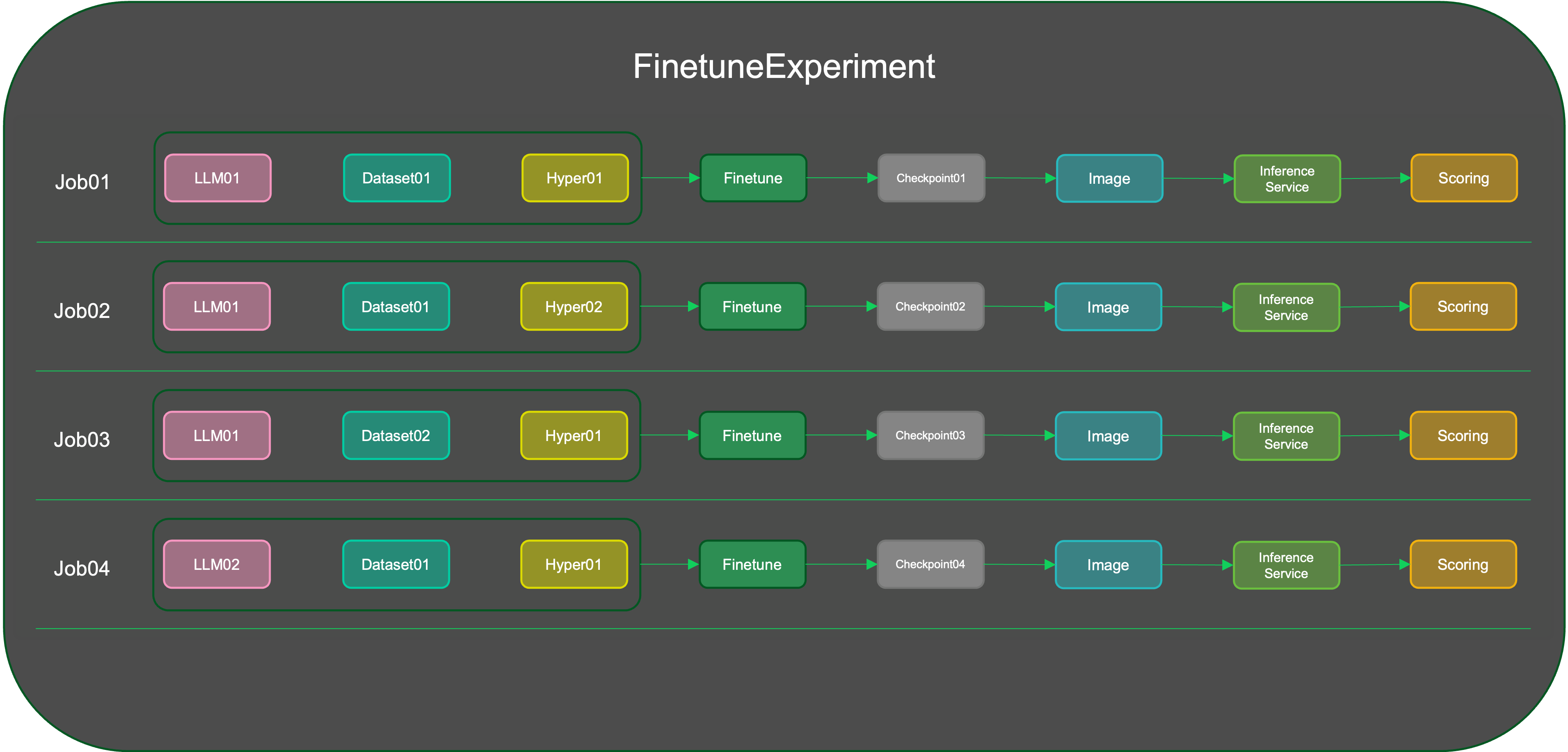---
MTPE: windsonsea
date: 2024-06-19
---
# DataTunerX





*DataTunerX (DTX)* is designed as a cloud-native solution integrated with distributed computing frameworks. Leveraging scalable *GPU* resources, it's a platform built for efficient fine-tuning *LLMs* with a focus on practical utility. Its core strength lies in facilitating batch fine-tuning tasks, enabling users to conduct multiple tasks concurrently within a single *experiment*. *DTX* encompasses essential capabilities such as *dataset management*, *hyperparameter control*, *fine-tuning workflows*, *model management*, *model evaluation*, *model comparison inference*, and a *modular plugin system*.
**Technology stack** :
*DTX* is built on cloud-native principles, employing a variety of [Operators](https://www.redhat.com/en/topics/containers/what-is-a-kubernetes-operator) that consist of distinct *Custom Resource Definitions (CRDs)* and *Controller* logic. Developed primarily in *Go*, the implementation utilizes the [operator-sdk](https://github.com/operator-framework/operator-sdk) toolkit. Operating within a [Kubernetes (K8s)](https://github.com/kubernetes/kubernetes) environment, *DTX* relies on the operator pattern for *CRD* development and management. Furthermore, *DTX* integrates with [kuberay](https://github.com/ray-project/kuberay) to harness distributed execution and inference capabilities.
**Status** :
*v0.1.0* - Early development phase. [CHANGELOG](https://github.com/DataTunerX/datatunerx/blob/main/CHANGELOG.md) for details on recent updates.
**Quick Demo & More Documentation** :
- Demo
- [Documentation](https://github.com/DataTunerX/datatunerx-controller) (COMING SOON)
**Screenshot**:
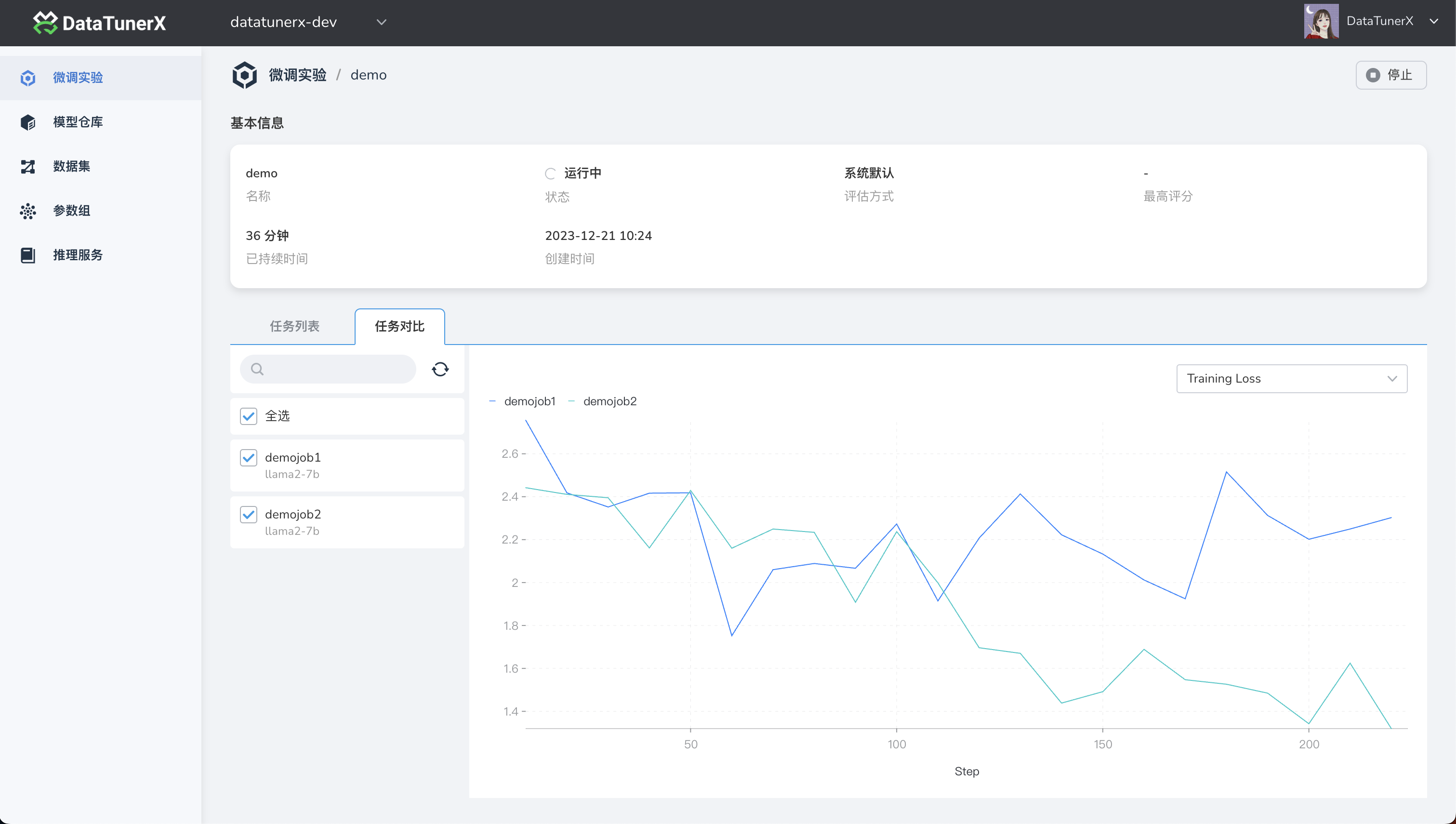
## What DTX can do? 💪
*DTX* empowers users with a robust set of features designed for efficient fine-tuning of large language models. Dive into the capabilities that make *DTX* a versatile platform:
### Dataset Management 🗄️
Effortlessly manage datasets by supporting both *S3* protocol (*http* is coming) and local dataset uploads. Datasets are organized with splits such as test, validation, and training. Additionally, feature mapping enhances flexibility for fine-tuning jobs.
### Fine-Tuning Experiments 🧪
Conduct fine-tuning experiments by creating multiple fine-tuning jobs. Each job can employ different llms, datasets, and hyperparameters. Evaluate the fine-tuned models uniformly through the experiment's evaluation unit to identify the fine-tuning results.
### Job Insights 📊
Gain detailed insights into each fine-tuning job within an experiment. Explore job details, logs, and metric visualizations, including learning rate trends, training loss, and more.
### Model Repository 🗃️
Store LLMs in the model repository, facilitating efficient management and deployment of inference services.
### Hyperparameter Group Management 🧰
Utilize a rich parameter configuration system with support for diverse parameters and template-based differentiation.
## Inference Services 🚀
Deploy inference services for multiple models simultaneously, enabling straightforward comparison and selection of the best-performing model.
## Plugin System 🧩
Leverage the plugin system for datasets and evaluation units, allowing users to integrate specialized datasets and evaluation methods tailored to their unique requirements.
## More Coming 🤹♀️
*DTX* offers a comprehensive suite of tools, ensuring a seamless fine-tuning experience with flexibility and powerful functionality. Explore each feature to tailor your fine-tuning tasks according to your specific needs.
## Why DTX? 🤔
*DTX* stands out as the preferred choice for fine-tuning large language models, offering distinct advantages that address critical challenges in natural language processing:
### Optimized Resource Utilization 🚀
**Efficient GPU Integration:** Seamlessly integrates with distributed computing frameworks, ensuring optimal utilization of scalable GPU resources, even in resource-constrained environments.
### Streamlined Batch Fine-Tuning 🔄
**Concurrent Task Execution:** Excels in batch fine-tuning, enabling concurrent execution of multiple tasks within a single experiment. This enhances workflow efficiency and overall productivity.
### Robust Feature Set for Varied Needs 🧰
**Diverse Capabilities:** From dataset management to model management, *DTX* provides a comprehensive feature set catering to diverse fine-tuning requirements.
### Simplified Experimentation with Lower Entry Barriers 🧪
**User-Friendly Experimentation:** Empowers users to effortlessly conduct fine-tuning experiments with varying models, datasets, and hyperparameters. This lowers the entry barriers for users with varying skill levels.
In summary, *DTX* strategically addresses challenges in resource optimization, data management, workflow efficiency, and accessibility, making it an ideal solution for efficient natural language processing tasks.
## References 🙌
- [DataTunerX Repo on GitHub](https://github.com/DataTunerX/datatunerx)
- [Ray Project](https://ray.io/): An open-source distributed computing framework that makes it easy to scale and parallelize applications.
- [KubeRay](https://github.com/kuberay/kuberay): An integration of Ray with Kubernetes, enabling efficient distributed computing on Kubernetes clusters.
- [Operator SDK](https://sdk.operatorframework.io/): A toolkit for building Kubernetes Operators, which are applications that automate the management of custom resources in a Kubernetes cluster.
- [LLaMA-Factory](https://github.com/hiyouga/LLaMA-Factory): An easy-to-use llm fine-tuning framework.
Feel free to explore these projects to deepen your understanding of the technologies and concepts that may have influenced or inspired this project.

